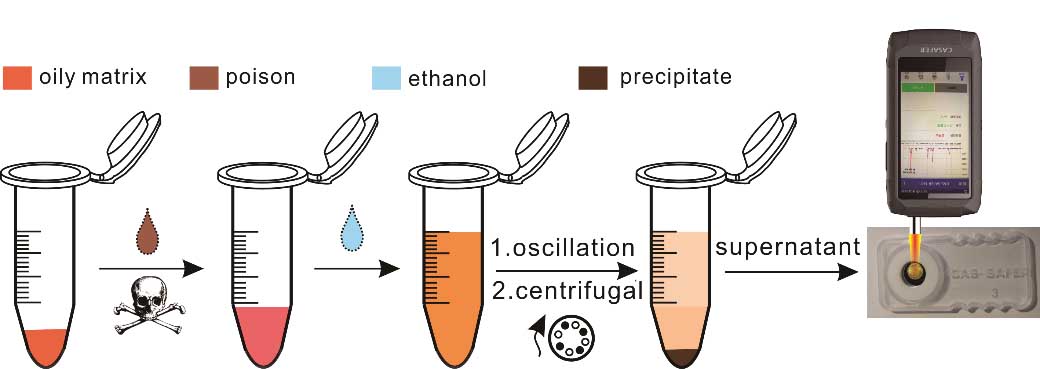
Recently, Professor YANG Liangbao, from Hefei Institutes of Physical Science, Chinese Academy of Sciences, developed an ethanol-extraction surface-enhanced Raman spectroscopy (SERS) strategy for highly sensitive detection of poisons in oily matrix.
In recent years, the cases of poisoning in oil matrix occurred frequently, but the composition is complex. It is difficult to conduct quick and direct detection of the poison in it. At present, most of the samples need to rely on large-scale detection and analysis instruments and unique extraction agents for pretreatment.
The SERS strategy could lead to great improvement in the detection of substances in oily matrix.
"We used ethanol and other solvents to remove impurities in the oily matrix, and reduced the surface tension of the solution. In this way, the molecules can get close to the SERS substrate surface easily, so as to promote the target objects to enter the hot area of the SERS substrate,” said YANG Liangbao, leader of the research team.
Combining with the hand-held Raman spectrometer, the research team carried out SERS detection of paraquat and diquat in several common kitchen waste substrates.
"The detection limit could reach 10 ppb and 100 ppb, respectively,” said YANG, “and the standard deviation is 7%. These data further proved that this method has good sensitivity and repeatability. It provides a solution to the problem of rapid detection of poisoning emergencies.”
This work was supported by the National Natural Science Foundation of China (No.61605221, 21974142), the Open Foundation of Beijing Field Material Evidence Testing Engineering Research Center (No. 2020CSEEKFKT07), and the Science and Technology Strong Police Project of Anhui Province (No. 201904D07020009).1804D08020308).

Figure 1. Schematic diagram of SERS detection based on ethanol extraction. (Image by WANG Yongtao)
Contact:
ZHAO Weiwei
Hefei Institutes of Physical Science (http://english.hf.cas.cn/)
Email: annyzhao@ipp.ac.cn